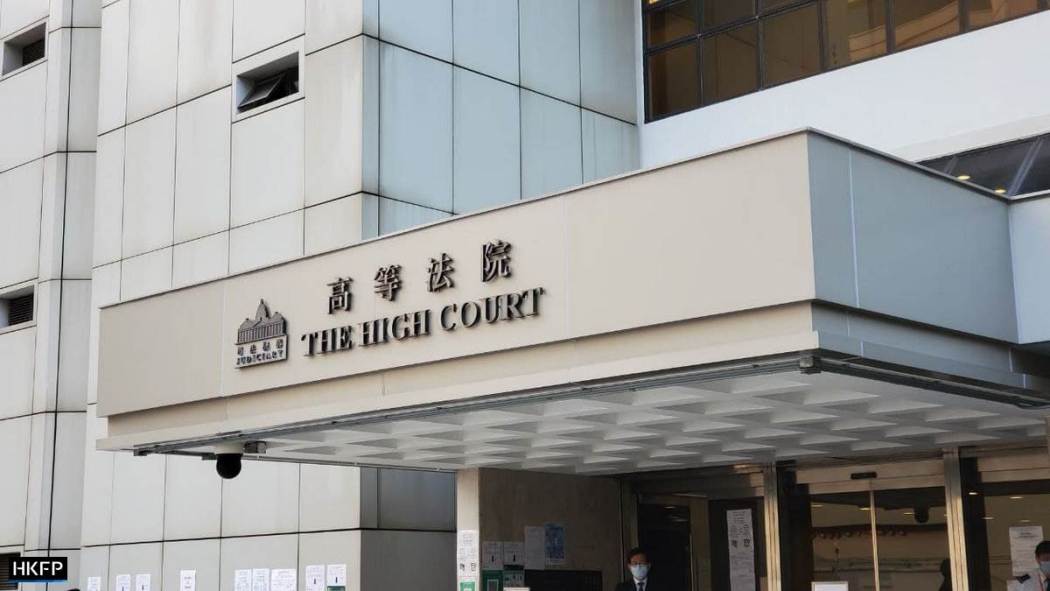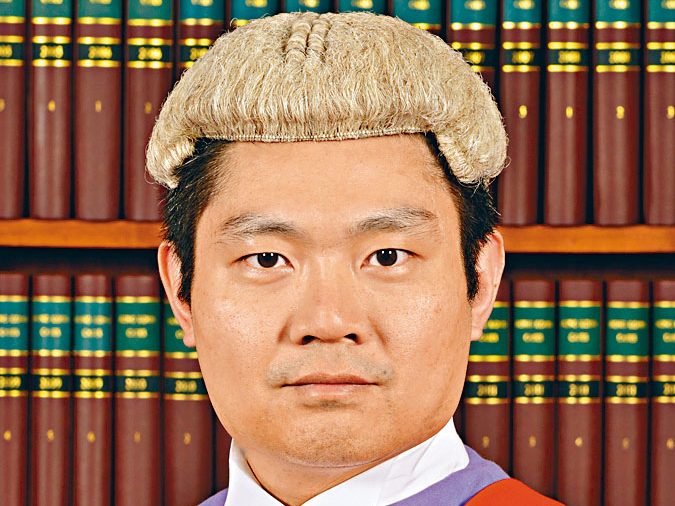The first person to be charged under Hong Kong’s national security law will not be allowed a trial by jury, the High Court has ruled, rejecting a defence application for a judicial review to challenge a decision by the Department of Justice.
In a ruling handed down on Thursday, Judge Alex Lee – one of the judges designated to handle national security law cases – said that unlike in the UK an accused does not have a general right to a jury trial.

There was no need for the Secretary of Justice to hear from or to inform the applicant before the decision rejecting a jury trail was made. Therefore, “none of the grounds relied upon by the applicant for the present application is reasonably arguable.”
“If the trial is to be conducted with a jury, there is a real risk that the due administration of justice might be impaired,” Lee’s judgement cited the Secretary of Justice’s directive.
Tong Ying-kit, 24, is accused of inciting secession and terrorist activities after he allegedly rammed a motorcycle displaying a protest flag reading “Liberate Hong Kong, revolution of our times” into three police officers in Wan Chai on July 1 last year, the day after the security law came into force.
‘Personal safety’
Justice Secretary Teresa Cheng told Tong’s legal team in early February of her department’s plan to try him without a jury, citing concerns for the “personal safety” of jurors and their family members. His case will instead be tried by a bench of three national security law judges: Esther Toh, Wilson Chan and Anthea Pang.
While Tong’s case will be heard at the High Court, where trials are typically heard by a judge and seven to nine jurors, Cheng invoked Article 46 of the national security law. This states that the Secretary may direct that a national security case be heard without a jury if it involves state secrets or foreign forces, or if potential jurors and their families might face a threat.
Tong applied in March for a judicial review to overturn the decision. His counsel Philip Dykes said in the writ that Tong had not been given the right to be heard before the department made its decision, which was illegal and unreasonable, Stand News reported.
Tong was charged two days after the alleged offence, becoming the first person charged under the law which provides for penalties of up to life imprisonment.

Justice Alex Lee said in a ruling last August that Tong’s bail application was refused because of a “flight risk” and “risk of re-offending.” The detailed explanations for such a conclusion were redacted in the ruling.
Citing a Court of Final Appeals decision against media tycoon Jimmy Lai’s bail application, Lee said the constitutionality of the national security law’s Article 46 cannot be challenged.
Tong has been detained since July 6, after his first bail application was denied by West Kowloon Magistrates’ Court. Chief Magistrate Victor So cited Article 42 of the national security law which stipulates that bail should not be granted to a suspect, unless there are sufficient grounds to believe that he or she would not continue to commit acts endangering national security.
Tong’s trial is set to begin on June 23.
Since last June, the police national security department has arrested 107 people and so far charged 57 of them, the overwhelming majority of whom are democrats. Most remain behind bars pending trial.
Correction 17:30: A quote about the risk to justice of a jury trial was misattributed to Justice Alex Lee in an early version of this article. In fact, the directive was written by Secretary for Justice Teresa Cheng.
Correction 18:55: A previous version of this article incorrectly stated Tong Ying-kit’s age as 23. He is 24.
Support HKFP | Policies & Ethics | Error/typo? | Contact Us | Newsletter | Transparency & Annual Report | Apps
Help safeguard press freedom & keep HKFP free for all readers by supporting our team
























